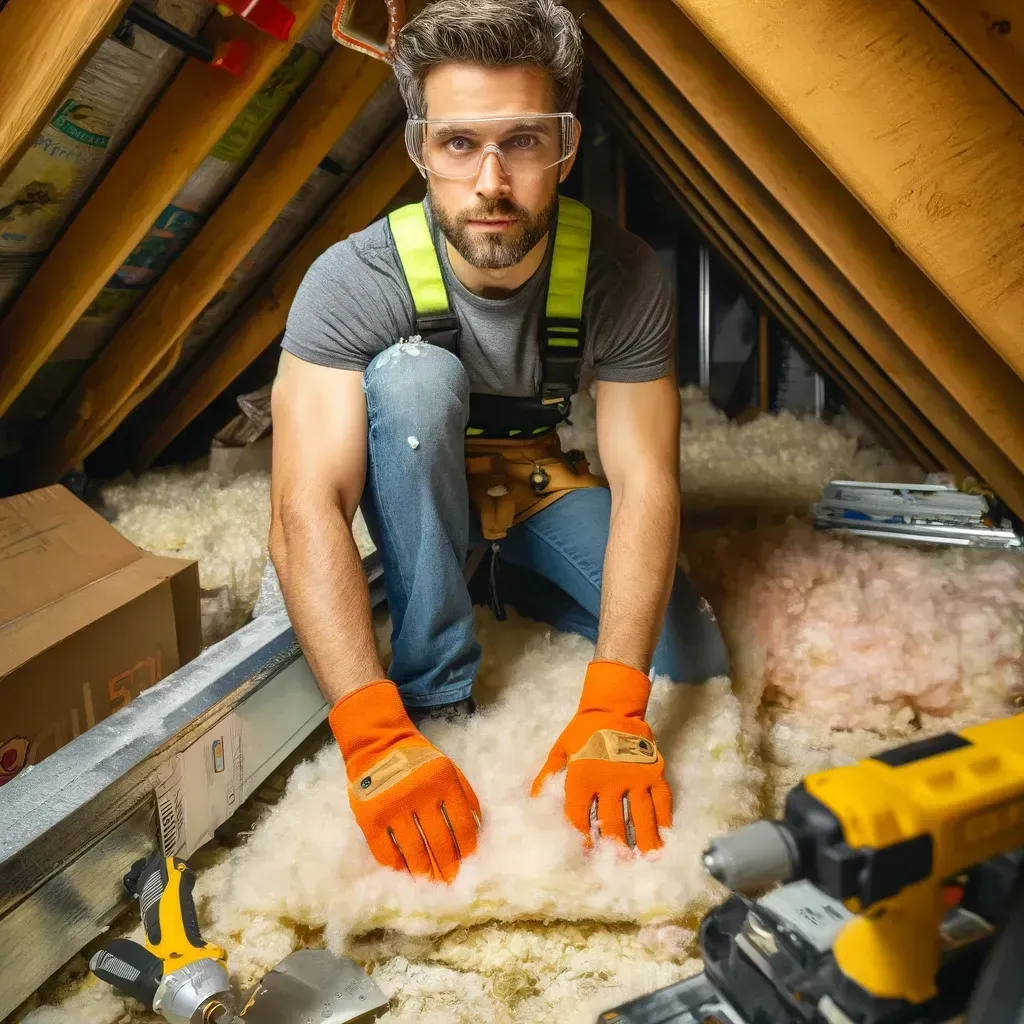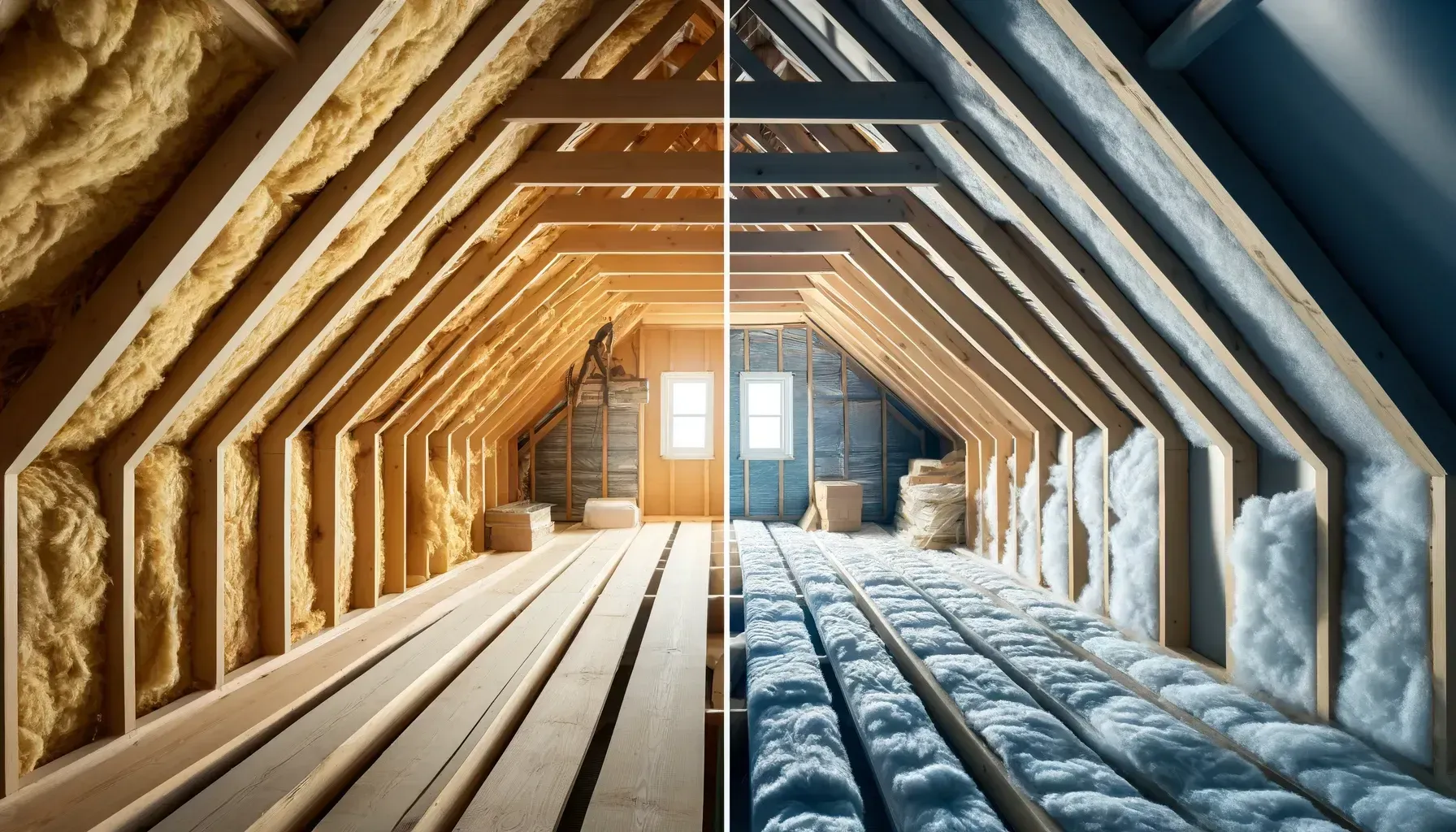How Elite Insulation Contractors Westminster Can Transform Your Home's Efficiency
While many associate insulation with keeping warm during the chilly winter months, its benefits, acting as an envelope against the elements, stretch far beyond and are a great way to keep a place comfortable year-round. Insulation, serving as a crucial envelope, plays a pivotal role in maintaining a comfortable home environment year-round, not just when the temperatures drop and is a great way to do so. It's the unsung hero in the battle against sweltering summer heat, ensuring your living spaces remain cool and comfortable. By understanding why insulation is important all year, homeowners can make informed decisions that lead to energy savings, enhanced comfort, and a reduced carbon footprint, regardless of the season.
Key Takeaways
- Insulation is crucial not just for keeping homes warm in winter but also for maintaining a comfortable temperature year-round, reducing the need for heating and cooling.
- By understanding the year-round benefits, homeowners can see insulation as a valuable investment for both comfort and energy savings.
- The environmental impact of proper insulation is significant, as it reduces energy consumption and greenhouse gas emissions, contributing to a healthier planet.
- Financial advantages of good insulation include lower energy bills and potential tax credits, making it a smart financial decision.
- Choosing the right insulation for your home is key to maximizing these benefits, so consider factors like R-value, material, and specific needs of different areas in your home.
- Actionable steps include evaluating your current insulation, researching options, and consulting with professionals to ensure you make informed decisions that suit your home and climate.
Importance of Insulation
Energy Efficiency
Insulation leads to significant savings on energy bills. It keeps temperatures optimal inside, cutting costs. This reduction in energy use also lessens environmental impact. Insulated ductwork is crucial here. It minimizes heat loss and boosts home energy efficiency.
Temperature Regulation
Insulation keeps indoor temperatures steady. This reduces the need for extra heating or cooling. It stops drastic temperature changes, making homes more comfortable and saving energy. Proper insulation also prevents moisture issues, ensuring a stable climate indoors.
Air Quality Improvement
Insulation blocks pollutants and allergens from entering homes. This improves indoor air quality significantly. It lowers the risk of respiratory problems and allergies. Insulation also cuts down noise pollution, making homes quieter and more peaceful.
Structural Integrity
Insulation protects homes from moisture buildup and damage. This preserves structural integrity over time. It saves money on repairs by shielding against rot and deterioration. Attic insulation is especially important for keeping a home's structure healthy.
Year-Round Benefits
Winter Warmth
Insulation acts as a warmth keeper during winter. It traps heat inside, reducing the need for high heating. This makes insulation cost-effective for a warm indoor climate in cold seasons.
It also prevents ice dams and structural issues related to winter. These benefits ensure homes stay warm without breaking the bank on heating bills.
Summer Coolness
In summer, insulation works differently. It reflects heat away, keeping homes cooler. This reduces air conditioning use, saving money and energy.
Insulation helps maintain comfortable temperatures during hot weather. It protects against heat damage to interiors and structures. Energy costs stay low while comfort remains high.
Consistent Comfort
Year-round, insulation offers stable indoor temperatures. It means living spaces are comfortably consistent, no matter the season. Homes are never too hot or too cold with proper insulation.
This consistency enhances overall living quality. It ensures that every room feels just right, providing peace of mind and comfort throughout the year.
Environmental Impact
Reduced Emissions
Effective insulation significantly lowers the need for heating and cooling in homes. This reduction directly leads to decreased energy demand from power plants, which primarily burn fossil fuels. Consequently, fewer greenhouse gases are emitted into the atmosphere. Insulation acts as a barrier, maintaining comfortable indoor temperatures year-round and minimizing the carbon footprint of buildings.
The environmental impact is profound. By simply ensuring homes are well-insulated, individuals contribute to broader sustainability goals. Reduced energy consumption not only lessens emissions but also diminishes the strain on our planet's resources. It's a critical step towards mitigating climate change and preserving air quality for future generations.
Sustainable Living
Insulation is a cornerstone of sustainable living practices. It conserves energy effectively and reduces waste by making buildings more energy-efficient. Choosing insulation materials that are durable and environmentally friendly further supports conservation efforts. These materials often have lower production impacts and can be recycled or sustainably sourced, reducing their overall environmental footprint.
The long-term benefits of insulation extend beyond immediate energy savings. They promote a sustainable lifestyle by enhancing energy efficiency and encouraging resource conservation. Well-insulated homes require less energy for heating and cooling, leading to lower utility bills and diminished environmental impact over time. This makes insulation an investment in both personal financial health and the health of our planet.
Financial Advantages
Lower Energy Bills
Quality insulation directly leads to lower energy bills. It acts as a barrier, keeping the desired temperature inside your home more consistent. This means your heating and cooling systems work less, saving you money. Over time, the savings on energy bills can be significant.
Investing in good insulation pays off. It's not just about immediate savings; it's about sustained reductions in heating and cooling costs. After upgrading insulation, homeowners often see a decrease in their monthly energy expenses right away.
Home Value Increase
Upgrading your home's insulation improves its energy efficiency and comfort, which can increase its market value. Energy-efficient homes are more appealing to potential buyers today than ever before. This makes them willing to pay more for such properties.
An investment in better insulation is a cost-effective way to boost your property’s value. It enhances the attractiveness of your home by making it more comfortable and cheaper to run. This appeal can lead to higher resale values.
Choosing the Right Insulation
Insulation Types
Various insulation types serve different purposes in a home. Spray foam insulation, for instance, is excellent for sealing leaks and gaps with its expansive properties. Fiberglass, on the other hand, is common in batts and rolls and is suitable for attic spaces and walls. Cellulose, made from recycled paper products, is an eco-friendly option that can be blown into walls and attics.
Choosing the right type of insulation ensures optimal effectiveness in temperature control. For example, spray foam might be best for areas prone to moisture because it resists mold growth. Fiberglass is often preferred for its affordability and ease of installation in large spaces. Cellulose stands out for its superior soundproofing abilities.
Each insulation type has its pros and cons. Spray foam offers high energy efficiency but at a higher cost. Fiberglass is less expensive but may irritate skin during installation. Cellulose is flame retardant but can settle over time, reducing its effectiveness.
Professional Installation
Professional installation of insulation cannot be overstated in importance. Experts ensure that insulation fills every nook, maximizing energy efficiency. They also navigate building codes effortlessly, ensuring compliance.
The long-term benefits include warranty coverage and performance guarantees that DIY projects lack. Professionals assess your home's needs accurately, recommending the best insulation type for each area.
DIY insulation projects carry risks like inadequate installation or choosing the wrong materials. Relying on professional services guarantees optimal results and avoids potential issues down the line.
Closing Thoughts
Insulation isn't just a winter thing; it's your year-round ally against energy loss, high bills, and environmental harm. You've seen how it works tirelessly to keep your home cozy in winter and cool in summer, slashing those hefty energy costs and reducing your carbon footprint. Choosing the right insulation means you're not just saving money; you're also taking a step towards a more sustainable planet.
Now's the time to act. Don't wait for extreme weather to remind you of your home's needs. Assess your insulation, and if it falls short, consider an upgrade. It's an investment that pays back manifold - in comfort, savings, and doing your bit for the environment. Make your home energy-efficient all year round. Your wallet and the planet will thank you.
Frequently Asked Questions
Why is insulation important all year round?
Insulation plays a crucial role in maintaining comfortable temperatures inside your home throughout the year, reducing the need for heating in winter and cooling in summer.
What are the year-round benefits of insulation?
Proper insulation offers enhanced comfort, energy efficiency, and noise reduction, making your living space more pleasant regardless of the season.
How does insulation impact the environment?
By improving energy efficiency, insulation reduces greenhouse gas emissions associated with heating and cooling, contributing to a healthier planet.
Can insulation really save money on energy bills?
Yes, by minimizing the need for heating and cooling, insulation can significantly lower energy costs over time, making it a smart financial investment.
How do I choose the right insulation for my home to ensure proper air sealing, enhance the building envelope, and protect against external elements in the first place?
Selecting the right insulation depends on your climate, home design, and specific needs. It's best to consult with a professional to ensure optimal performance and efficiency.


